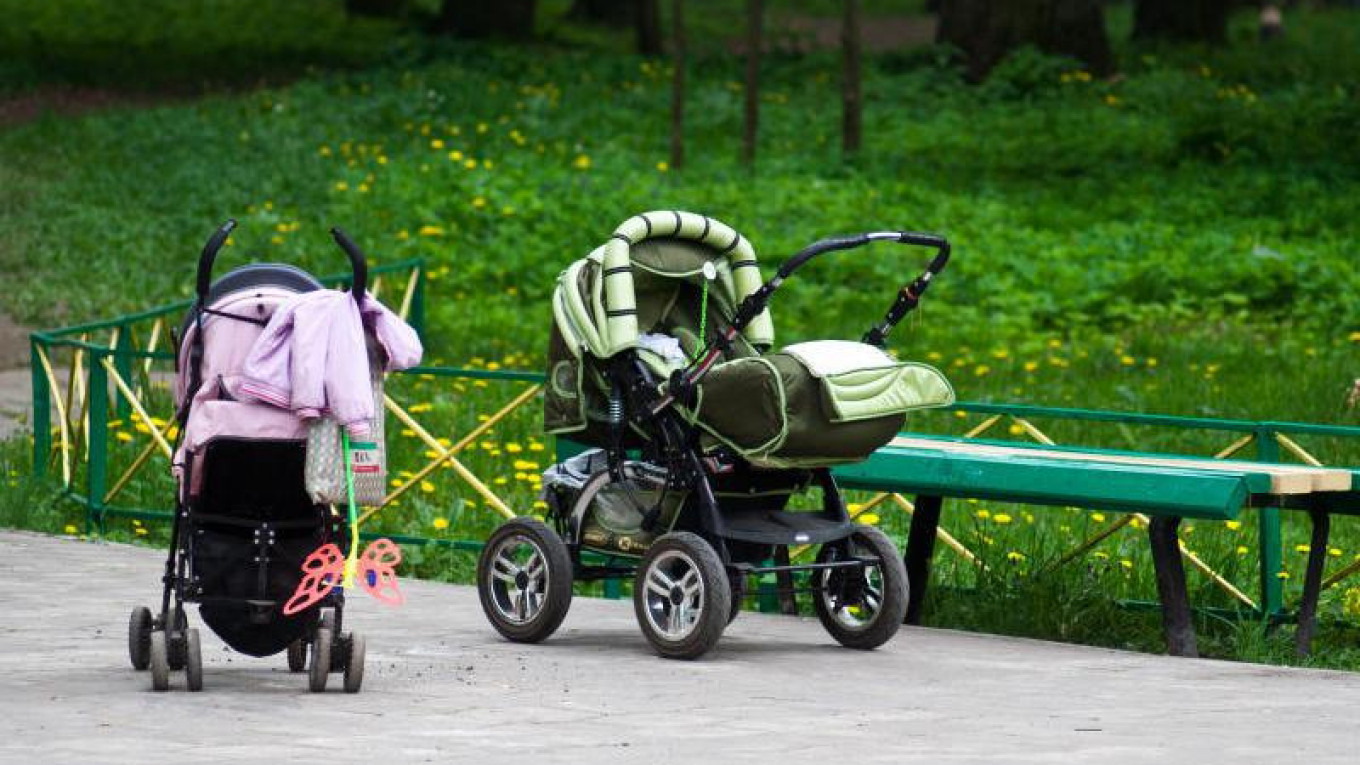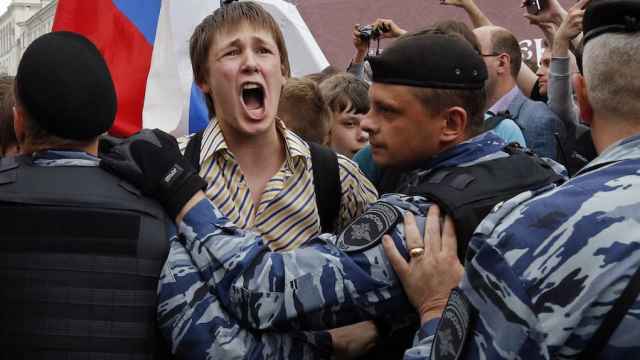The latest numbers are in, and the forecast for Russia’s demographic health is bleak. According to official figures released by the country’s state statistics agency, Rosstat, in late May, Russia had 70,000 fewer births during the first four months of 2017 than it did a year earlier.
These statistics run against the Kremlin’s triumphalist narrative, in which strong leadership and shrewd investments allowed Russia to decisively turn a demographic corner.
Instead, as one analysis of the Rosstat figures puts it, the “extinction” of Russia’s population is accelerating, as the adverse demographic trends that have long affected the country continue to rage unabated.
This state of affairs is hardly new. For decades, Soviet leaders—and then Russian ones—grappled with a persistent population downturn caused by factors like high mortality, pervasive abortion and low life expectancy. That situation has continued into the Putin era—in 2012, the Russian president himself predicted that the nation’s population would dwindle to just 107 million by 2050.
The latest Rosstat numbers confirm this trend and put
the country on track to lose nearly 300,000 souls this year
alone.
This state of affairs is hardly new
Over the past few years, the Russian government has launched several attempts to reverse population decline. Arguably the most prominent of these has been the “maternity capital” campaign launched by President Putin in late 2006 giving $11,000 to women who give birth to at least two children.
Its impact was negligible.
A comprehensive demographic strategy remains mostly conceptual, despite the fact that the Kremlin passed a governmental blueprint for resolving the issue (known officially as the Concept of Demographic Policy) a decade ago.
In fact, the country seems to be heading the opposite direction. The Kremlin’s recent drive to “optimize” social services and healthcare—a part of Putin’s ongoing attempt to grapple with Western sanctions—threatens to wipe out even the modest contributions that recent medical and social initiatives have made to the overall pace of Russia’s population.
These numbers should spur some serious thinking from
Russia’s leaders. They need to address their country’s national
identity, the health of its population, and its place in the
world.
Sadly, there’s little reason to expect they will.
Over the past decade, Mr. Putin and his government have prioritized initiatives that project the image of Russia as a global power. This has led to a certain set of spending priorities. The Kremlin has invested heavily in military procurement, the development of new strategic capabilities, and foreign adventurism in places like Ukraine and Syria.
According to a 2015 survey by Bloomberg, military expenditures have increased by a factor of twenty since Mr. Putin became president a decade-and-a-half earlier. Defense and security now account for some 34 percent of Russia’s budget.
Meanwhile, social programs and infrastructure, which collectively make up the lifeblood of a healthy society, have received markedly short shrift. This year, Russia is estimated to spend less than 11 percent of its total federal budget on health care and only slightly more (11.5 percent) on education. By way of comparison, the United States spends some 19.1 percent of its budget on military expenses, roughly the same amount on health care, and nearly as much [17.1 percent] on education.
This imbalance could have ruinous consequences. Misplaced priorities have helped perpetuate—and even accelerate—the adverse demographic trends that have historically plagued Russian society, with long-term effects on the country’s vitality and perhaps even its viability as a nation.
In the process, Putin and company have become serial violators of an age-old tenet of governance: that prosperity and stability must begin at home.
Ilan Berman is Senior Vice President at the American Foreign Policy Council in Washington, DC
A Message from The Moscow Times:
Dear readers,
We are facing unprecedented challenges. Russia's Prosecutor General's Office has designated The Moscow Times as an "undesirable" organization, criminalizing our work and putting our staff at risk of prosecution. This follows our earlier unjust labeling as a "foreign agent."
These actions are direct attempts to silence independent journalism in Russia. The authorities claim our work "discredits the decisions of the Russian leadership." We see things differently: we strive to provide accurate, unbiased reporting on Russia.
We, the journalists of The Moscow Times, refuse to be silenced. But to continue our work, we need your help.
Your support, no matter how small, makes a world of difference. If you can, please support us monthly starting from just $2. It's quick to set up, and every contribution makes a significant impact.
By supporting The Moscow Times, you're defending open, independent journalism in the face of repression. Thank you for standing with us.
Remind me later.








